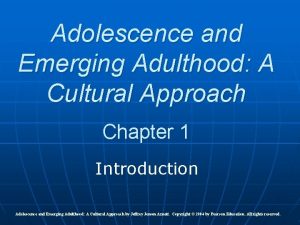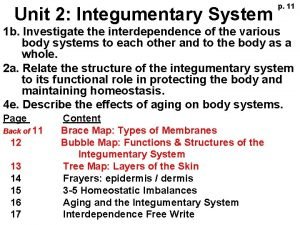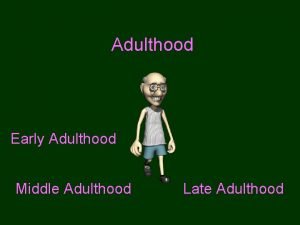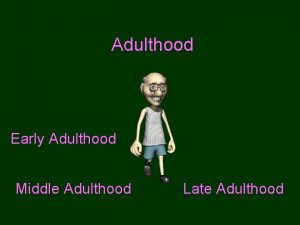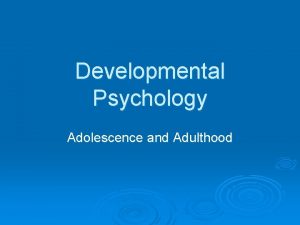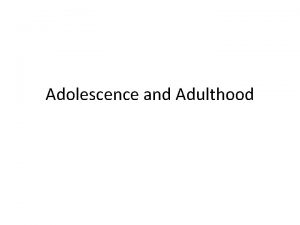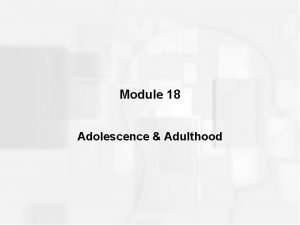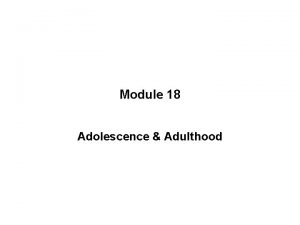ADULTHOOD AGING The development period following adolescence that







- Slides: 7

ADULTHOOD & AGING • The development period following adolescence that also features many milestones and markers. The transitions throughout adulthood are less apparent but equally as important as those you’ve experienced earlier in life.

DO NOW • Society has created a list of important events that transpire during adulthood. What events are you most looking forward to when you become an adult?

OBJECTIVES • Define the concept of social clock and explain how it affects the transition from adolescence to adulthood. • Discuss the physical changes that occur in middle to late adulthood. • Discuss the cognitive changes that occur in middle and late adulthood. • Predict the likely effect of significant life events (such as marriage, meaningful employment, and the aging process) on happiness and life satisfaction.

EARLY ADULTHOOD TRANSITIONS • Social Clock: The culturally preferred timing of social events such as marriage, parenthood, and retirement. • 5 features of emerging adulthood: • Age of Identity exploration • Age of instability • Age of self-focus • Age of feeling between • Age of possibilities

WRITING ASSIGNMENT • Write your response to this prompt on you “Do Now” paper. • Have you made any concrete plans for life after high school? (College, work, military) • Write a paragraph detailing your plans or your current ideas. • Don’t worry…. there a lot of teenagers your age that don’t have concrete plans, yet.

ADULTHOOD CHANGES o Menopause: When the menstrual cycle ends, usually between the ages of 45 and 55. o Testosterone levels drop in males, but not at the sharp rate at which estrogen levels decrease in women. Period Approx. Age group Early Adulthood 20 -35 yrs. Middle Adulthood 36 -64 Late Adulthood 65 and over

LATE ADULTHOOD CHANGES • Alzheimer’s Disease: A progressive and irreversible brain disorder characterized by gradual deterioration of memory, reasoning, language, and, ultimately physical functioning. • Senile Dementia: A type of mental disintegration that can be caused by alcoholism, tumor, strokes, or anything else that results in a substantial loss of brain cells. • Fluid intelligence: Our ability to reason speedily and abstractly. (Logic problems) • Crystallized intelligence: Accumulated knowledge and verbal skills , tends to increase with age.
